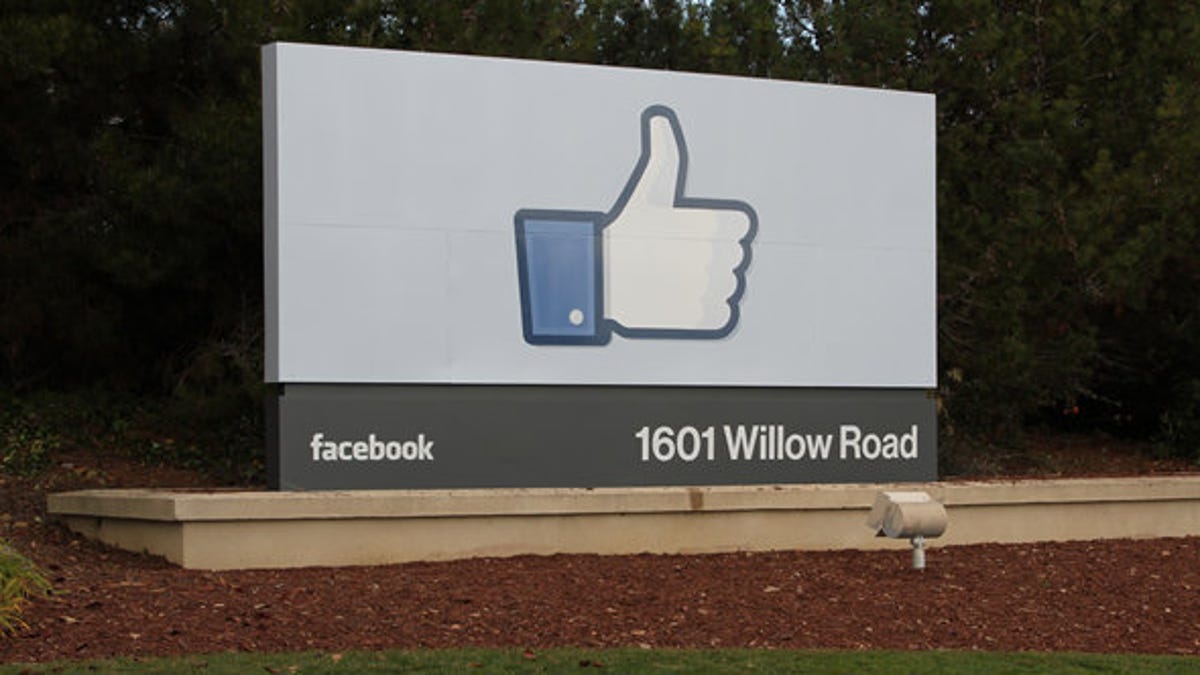Facebook to court: Likes are protected by First Amendment
The social network takes a big step in arguing for the free-speech rights of users who were fired for "liking" the Facebook page of a candidate for sheriff.

When you "like" something on Facebook, that expression is indeed covered by the First Amendment, Facebook is arguing in a new court document.
The friend-of-the-court brief, filed last night, also urges an appeals court to vacate a recent ruling by a judge in Virginia that Facebook "likes" are not protected speech.
In that ruling in the spring, U.S. District Judge Raymond Jackson had said, essentially, that just clicking a Facebook button differs materially from the kinds of statements traditionally protected by the First Amendment. As a result, the judge dismissed a claim by six employees of the Hampton, Va., sheriff's department that they had been wrongfully fired for supporting a candidate opposing the sheriff in a 2009 election. Three of those employees had "liked" the Facebook page of the sheriff's opponent.
At the time, Judge Jackson said:
The sheriff's knowledge of the posts only becomes relevant if the court finds the activity of liking a Facebook page to be constitutionally protected. It is the court's conclusion that merely 'liking' a Facebook page is insufficient speech to merit constitutional protection. In cases where courts have found that constitutional speech protections extended to Facebook posts, actual statements existed in the record.
Facebook takes issue with that logic -- enough so to warrant the rare step for the social-networking giant of filing the friend-of-the-court briefing in a visible sign of interest in entering a legal fray on behalf of the rights of its users.
Here is an excerpt from a summary of the social networking giant's argument (you can read the whole of the filing in the embed below):
The district court's holding that " 'liking' a Facebook page is insufficient speech to merit constitutional protection" because it does not "involve[ ] actual statements," J.A. 1159, betrays a misunderstanding of the nature of the communication at issue and disregards well-settled Supreme Court and Fourth Circuit precedent. Liking a Facebook Page (or other website) is core speech: it is a statement that will be viewed by a small group of Facebook Friends or by a vast community of online users.
Facebook emphasizes that the medium shouldn't determine whether a statement is protected under the First Amendment:
If Carter had stood on a street corner and announced, "I like Jim Adams for Hampton Sheriff," there would be no dispute that his statement was constitutionally protected speech. Carter made that very statement; the fact that he did it online, with a click of a computer's mouse, does not deprive Carter's speech of constitutional protection.
The American Civil Liberties Union, which also filed a friend brief (PDF) last night in the appeal of Judge Jackson's ruling, was fully supportive of the social network's action.
"Facebook should be applauded for filing this brief to support the free speech rights of its users," the ACLU said in a statement. "Facebook has become a means of communication for tens of millions of Americans, and if basic activity on Facebook such as 'liking' were denied First Amendment protection, the free expression of ideas that the First Amendment is meant to safeguard would be severely limited."
In its 26-page document, Facebook goes into further detail explaining how the social network works in general, how "liking" a Facebook Page works, and why the judge came to an "erroneous conclusion." The company concludes that the court should "vacate the grant of summary judgment" and "remand the case."
The ball is now back in the judge's court.

